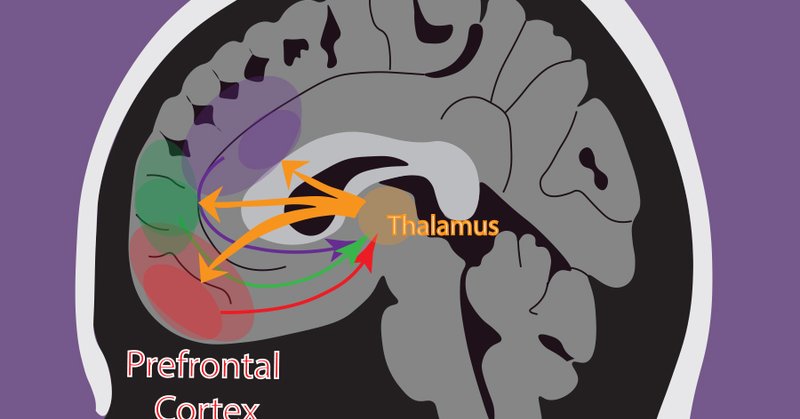
Emory Neuroethics
@EmoryNeuroethic
Followers
1K
Following
441
Media
204
Statuses
1K
The Neuroethics Program aspires to support scholars to explore the ethical implications of neuroscience. Moderated by program intern Alexa Mohsenzadeh.
Emory University
Joined January 2013
"Going beyond current studies on substance use disorders, which focus on the impact of addictive drugs on the brain, this new research highlights an existing connection between specific neurons and peripheral organs." | @ScienceDaily .
sciencedaily.com
A new study establishes important conceptual connections between the fields of circadian rhythms, metabolism, and addiction. Going beyond current studies on substance use disorders, which focus on...
12
3
4
RT @neuroethics2day: Listen to the most recent episode of the Neuroethics Today podcast: Katleen Gabriels - “I’m not worried about AI getti….
creators.spotify.com
During Episode 5 of Season 2, we focused on the topic of the hour: Artificial Intelligence (also known as AI). Katherine Bassil - founder and host - together with Dr. Katleen Gabriels - moral...
0
8
0
“Two of the main ethical considerations suggest that clinical care and research should be separated and that physicians should prioritize their roles as clinicians over their roles as researchers” | @dailybruin .
dailybruin.com
UCLA ethicists and neuroscientists recently collaborated with other researchers across the country to create a list of principles for ethical invasive brain research. Intracranial research uses...
0
4
5
RT @mcgovernmit: Activating a specific acetylcholine receptor in the brain reduces cocaine use in rodents, according to a Graybiel lab stud….
mcgovern.mit.edu
Cocaine, opioids, and other drugs of abuse disrupt the brain’s reward system, often shifting users’ priorities to obtaining more drug above all else. For people battling addiction, this persistent...
0
3
0
RT @NeuroethicsUBC: In case you missed Ethics in the Arts, please visit our website for a video recording and recap of the event highlights….
0
3
0
RT @MicheleFarisco: Can #neuroethics collaborate with #AIEthics in improving #AI regulation? We argue it can, for b….
link.springer.com
Neuroethics - Contemporary ethical analysis of Artificial Intelligence (AI) is growing rapidly. One of its most recognizable outcomes is the publication of a number of ethics guidelines that,...
0
8
0
“Two researchers at Ruhr-Universität Bochum (RUB) have come up with a new theory of consciousness…a state that is tied to complex cognitive operations -- and not as a passive basic state that automatically prevails when we are awake.” | @ScienceDaily .
sciencedaily.com
A new theory of consciousness provides experimental access to the study of this phenomenon. Not just in humans.
0
0
3
RT @neuroethicsinfo: As the #neuroethics community, let's honour National #Indigenous History Month by crowdsourcing a list of #neuroethics….
0
4
0
“What if, instead, you could create synthetic neurological data—artificially computer-generated data—that could “stand in” for data obtained from the real world? Enter generative adversarial networks.” | @USCViterbi .
viterbischool.usc.edu
Synthetic neurological data created using generative adversarial networks could speed up training of brain-computer interfaces, new study finds.
0
0
2
“The point of the bot is to help AI to work better with humans…‘We have to teach AI ethical values b/c AI interacts with humans. And to do that, it needs to be aware what values human have’” | @guardian .
0
1
4
RT @neuroethicsinfo: At the 2021 INS Annual Meeting, dive into the emerging subfield of environmental #neuroethics. Join us for a discussio….
0
3
0
“A future where…pigs are raised to harvest their organs for humans raises significant ethical questions…Advocates for xenotransplantation argue the potential benefits of vastly expanding the organ supply are worth any potential harm done to pigs.” .
sciencenews.org
For the first time, a pig organ was successfully attached to a human patient. It’s a step toward vastly increasing the supply of organs.
0
1
1
“Neuroscientists at MIT…have homed in on key brain circuits that help guide decision-making under conditions of uncertainty…they’ve found neurons that stop the brain from using unreliable information.” | @mcgovernmit .
news.mit.edu
MIT neuroscientists have homed in on key brain circuits that help guide decision-making under conditions of uncertainty. The findings could help researchers develop treatments for schizophrenia,...
0
7
11
“The amendment to the Chilean Constitution ‘is the first law in the world on neuro-rights, and it is the first step in a legislative ecosystem that will regulate artificial intelligence and neuro-technologies.’” | @JURISTnews .
0
4
9
RT @neuroethicsinfo: From #mentalhealth to #predictivejustice, join us this week for spotlights on the expert panels scheduled for the 2021….
0
7
0
“A team of Korean researchers developed a novel multifunctional brain interface that can simultaneously register neuronal activity and deliver liquid drugs to the implantation site” | @ScienceDaily @DGIST_KOREA .
sciencedaily.com
Although measuring the electrical activity of neurons is useful in many disciplines, making durable neural interfacing brain chip implants with negligible adverse effects has proven challenging. Now,...
0
3
8
“Taking into account energy-conserving constraints may drive us towards new and creative innovations in AI…by pursuing AI use cases in the environmental space, AI can remain at the cutting edge” | @wef.
weforum.org
With the right approach, AI can become a sustainable technology and a key tool in mitigating the worst impacts of climate change.
0
0
2
“The guidelines highlight the need for physicians to recognize patient autonomy and the key role played by family caregivers. And they require doctors to acknowledge the need to balance independence and risk as they discuss care choices.” .
0
4
7







